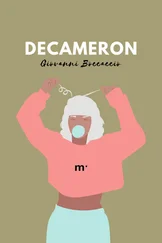This story is only partially about Amanda Squalls. But it is important to know where she worked. Were it not for Leonora’s weekly trip to meet Amanda for lunch at New Hellas Café and eat saganaki and drink wine — Detroit had for the last several years flouted the Prohibition statute with near impunity — were it not for a friendship that included weekly luncheons of flaming cheese and lively gossip and Amanda’s acicular opinions on the subject of how her forty-one-year-old friend Leonora should spend the second half of her life — the benighted half — there should be no story.
Leonora lived with her mother in Redford Township west of Detroit. Although the two were very close, Leonora enjoyed the time they spent apart, especially her visits to the Kunsky Redford Theatre not far from her house. The Kunsky was a beautiful new movie palace with a colorful Japanese garden motif, and Leonora was one of its most frequent patrons.
Sound was coming in. And sound movies couldn’t happen too soon for a woman who was fast losing her eyesight.
Leonora worked as a sales clerk for C.S. Smith Hardware, a vocation that guaranteed she’d soon be unemployed. She was the store’s first lady sales clerk, hired for her “chromo-smarts.” Leonora sold house paint. She was exceptionally adept at guiding her customers through the lengthy catalogue of available hues: Beaver Brown, Chocolate Brown, Colonial Yellow, Dove, Fawn, Terra Cotta, Pea Green, Nile Green, Golden Green, Emerald Green, Willow Green, Pearl Gray, Mother Goose, Cremnitz White, Brickdust, Sauterne, and American Vermilion (for firehouses). This is only a partial list.
“I’m going to miss it,” said Leonora to her friend Amanda over lunch during one of those Tuesdays in October when the nation, though faced with an unstable stock market, was still gay and prosperous, and most of its citizens’ problems could still be solved without jumping out of windows.
“Miss what?”
“Color. All the color in the world. I know the name of every color there is. And if a color doesn’t have a name, I’m quite good at making one up.”
“Such as?”
“Hmm. See the ribbon on that woman’s hat? The cloche with the turned-up, scalloped brim? What color would you say the ribbon is?”
“It looks yellow.”
Leonora shook her head. She smiled impishly. “That isn’t just yellow, Mandy. It’s yellow with a slight cast of white. I would call it Canary in the Snow.”
“You would, would you?” Amanda laughed and took of sip of her thick, muddy Greek coffee.
The waiter came by to see if the two women would be having their usual dessert: baklava.
“We’re so terribly drab and boring, aren’t we, Pavlos?” said Amanda with a wink. “But the baklava is so sinfully good that I don’t ever want to try anything else. What about you , Leonora?”
“Baklava,” said Leonora with authority.
The two women watched the handsome and hirsute young waiter walk away.
“I want to have his baby,” confided Amanda. “How about you , my dear?”
“That train has already left the station, love.”
“I have no idea how you could possibly have reached the advanced age of — what is it, darling? Are we at the mid-century mark for you now? — without your ever having had a taste of—”
“I am forty-one,” snapped Leonora. “But regardless, that window has closed, and I’ve made my peace with it.”
“Oh, I don’t believe that for a minute ! You haven’t lived at all. You’ve let the parade pass you by. And now…” Amanda bit her lip. She closed her eyes and leaned forward in her chair, wanting very much to say something her sensitivity to Leonora’s feelings would not permit.
“Just spill it, Amanda.”
Amanda pulled a cigarette case from her pocketbook and fumbled with the clasp. “And what is it you think I want to say?”
“I think, sweetheart, that you want to say that I have defied all the bookmakers’ odds. I have lived and worked in a city, or rather very near a city of men . Of every sort of he-man steelforger, shipbuilder, carmaker — every sweat-dripping, brawny-limbed, big-shouldered, woman-hungry man that there could possibly be and for some reason known only to God, I have not had the good fortune to bring any of them permanently into my life. Or into my bed. And now I must live with the conse—”
“Sweet Jesus, Leonora. You’ve never been to bed with a man? Please tell me you’re joking!”
“I’m not.”
“What about the doughboy?”
“You mean Adam, with the reproductive wound?”
“Or the Glidden salesman. What was that handsome young man’s name?”
“It was Vincent. Vincent liked colors even more than I did. He liked other pretty things as well. He collected lace.”
“Poor, poor girl. And now you’re going blind. And you won’t even be able to see what it is that you’ve been missing.”
“That was beyond cruel.”
“It’s true. Have you ever seen a man without his clothes on? Even if by accident? Your father?”
Leonora shook her head. “What’s more, I am uncomfortable with this conversation.”
“But surely you must know what a naked man looks like.”
“I am not a nun, Leonora. I’ve seen pictures.”
“My heart is breaking.”
“It’s my cross to bear. Let’s change the subject. I may decide not to come for lunch next week if you don’t turn off the pity faucet. And you’re being rude. Not to mention lewd.”
Leonora was forced to suspend her reproach of her friend; Pavlos had returned with dessert and Leonora’s eyes were now level with his crotch, the perimeter of darkness in her narrowing glaucomatous field of vision fortuitously irising in on the waiter’s groinal contours, both to Leonora’s temporary delight and to her ultimate gloom and despair, for this was yet another reminder of what would be lost to her once her eyesight disappeared altogether.
But there was truth to what Amanda said, and Leonora knew it.
By the following week, Leonora had come to an important and rather bold decision that she felt she should share with her best friend. She could not— would not, it was now clear — lose her eyesight without having seen a man in the flesh, in all his flesh, an image that would create a lasting visual memory through all the years she would spend in darkness. She had reached the apex of this decision while watching Coquette , featuring a one-hundred-percent chattering Mary Pickford and the ruggedly handsome football-player-turned-screen-actor Johnny Mack Brown, whom Leonora would very much like to have glimpsed showering in some stadium locker room during his gridiron days.
It would be asking a lot of Amanda, but Leonora wished to enlist her best friend in soliciting some kind of viewing for Leonora’s transitory pleasure and permanent retention. Amanda knew men — men of sufficient build who might agree to give Leonora a free look. Amanda knew Detroit coppers, both those who carried guns and those who wore gloves and directed traffic with balletic grace. She knew tough-as-nails, square-jawed federal agents, some of whom chased rum runners with patriotic zeal and others who were on the take but no less sthenically appealing. Amanda might even be able to entice a strapping young Canadian Mountie to ford the Detroit River from Windsor and remove every stitch of his uniform and undergarments (while keeping the Stetson securely in place). Leonora was sure that Amanda, after some initial sniggering, would agree to her odd yet desperately articulated request.
Tuesday came and Leonora found herself sitting in a chair in the Traffic Division of the Detroit Police Department waiting for Amanda. Her heart was pounding. Leonora had never in her life attempted anything so impetuous. And yet, Leonora’s lifetime of prudence and circumspection had brought her to a point she was not proud to admit to. Men had shown interest in her. She had politely turned them down. Men had sought to bed her — she was sure of it. But she had been afraid and somewhat put off. Is this all that men think about? Leonora didn’t believe herself to be priggish, and yet their advances — the advances of most of the men she’d met — seemed boorish and sloppy and presumptuous, and she would have no truck with them.
Читать дальше












